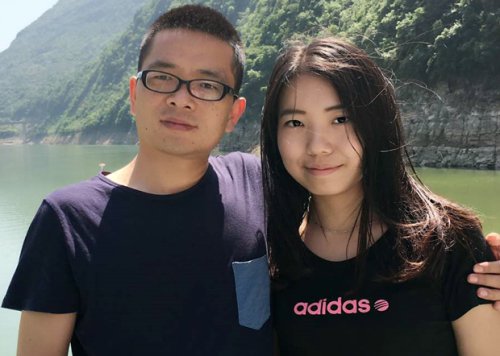The recent arrest of a relatively unknown dissident in China may have been made possible by the regime’s use of facial recognition technology, now widely installed in camera systems in major cities in China. If so, this arrest could mark the Chinese regime’s entry into a period of what critics are calling “digitized totalitarianism.”
Around 4:30 p.m. on Dec. 19, 40-year-old Chinese dissident writer Li Xuewen was approached and arrested by two plainclothes police officers at the Guangzhou railway station just as he was exiting the metro there. Li was told on the spot that he was on the wanted list of China’s Ministry of Public Security for “gathering a crowd to disrupt social order.” Li was then taken into custody and sent to the Xinhui detention center.
According to a statement later released by Li’s lawyer Ge Yongxi, Li was questioned repeatedly for his participation in a seaside memorial held on July 19, 2017, in Xinhui, an urban district that, like the metropolis Guangzhou, is in southeastern China’s Guangdong Province. The memorial sought to commemorate Liu Xiaobo. The Nobel Peace Prize laureate had died four days earlier on July 13 due to a prolonged illness that he had developed in prison. Participants in the memorial were later targeted by the Chinese regime and all were heavily prosecuted, as the regime sees any commemoration of Liu Xiaobo as an act of political dissent.
In his lawyer’s statement, Li Xuewen suspects that he was identified at the metro station by the sophisticated facial recognition cameras that the Guangzhou authorities have installed. If true, this would be one of the first cases, if not the first case in history, where the Chinese regime is suspected of catching a political dissident using the facial recognition technology in which it has heavily invested in recent years.
While Li’s claim about the role of the facial recognition system in his arrest cannot be independently verified, it is likely that some form of tracking technology was indeed used considering that it took place at an exit to the Guangzhou metro station.
Unlike China’s high-speed rails and trains, which all require riders to purchase a ticket with a national identification card, which can then be tracked by security, the Guangzhou metro system still relies on an anonymous fare card system called “Yang Cheng Tong,” which would not normally betray the identity of its user to the authorities. Li Xuewen likely thought that he could remain anonymous while passing through the turnstiles at the metro.
In recent years, however, Guangzhou has become one of the cities in China that has spread-headed Chinese regime’s move to impose ever-more intrusive mass surveillance tools on the daily lives of the Chinese people.

As early as 2015, the state mouthpiece Xinhua news agency reported that facial recognition cameras have been installed across the sprawling Guangzhou metro are to help policing and “counter-terrorism” operations. Another Xinhua story reported that the facial recognition system used in Guangzhou is supplied by PCI-Suntek Technology, a Guangzhou-based company that has been heavily funded by the Guangzhou city government.
In 2015 the system could “identify five individuals in one second,” the Xinhua report boasted. Once a match with the “wanted” database has been identified, the system will automatically alert nearby police through notification to their mobile phone policing apps.
While the Xinhua report said that the system will “only” check the captured facial data against the existing wanted criminal database, PCI-Suntek Technology’s official website says that it also saves a “digital print” of all the images of faces captured by the system for use in later identification. Because of this, the system could theoretically monitor the travel pattern of all the people it had ever scanned, even among those that are not listed in the criminal database.
According to its corporate report for the first half of 2017, PCI-Suntek Technology has already installed this facial recognition system across the metro and train systems of 17 cities in China including Guangzhou, Qingdao, Tianjin, Xiamen, Wuhan, and Ningbo. The report also boasted of a “great opportunity” to be had in Xinjiang under the “One Belt One Road” policy, alluding to the possibility that the company will provide a facial recognition system for the Chinese regime to spy on the Uyghur ethnic minority there.
The Chinese regime has become the world’s biggest market for mass surveillance tools as it seeks to harvest the power of new technology to deepen its control over China’s population of 1.4 billion. The arrest of Li Xuewen seems to confirm predictions that the regime is bringing an “Orwellian nightmare” and “digitized totalitarianism” to China.
As of Dec. 29, Li Xuewen is still in the Chinese regime’s custody. In his pre-written statement on Oct. 31, 2017, in anticipation of an eventual arrest, Li said that in the past months he has lived through an “extraordinary period of hiding and changing locations, which has worried my family, girlfriend, and friends.” Li said that he now has “no fear at all” but hopes that his friends “do everything they can to advocate on my behalf.”
From The Epoch Times
Recommended Video:


